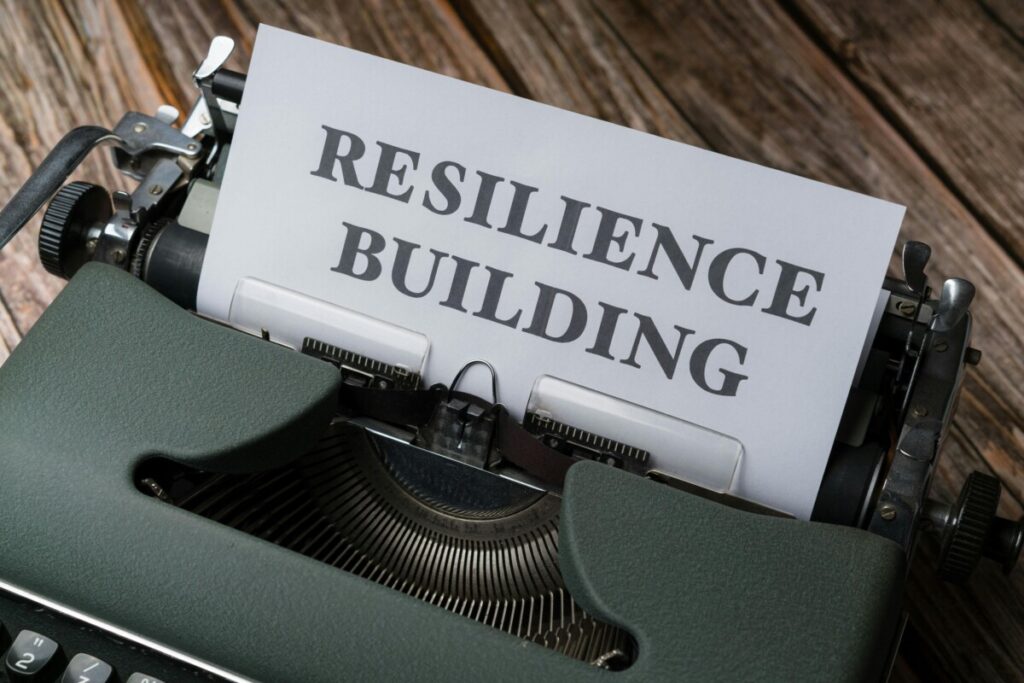The Art of Mastering Emotional Intelligence

Emotional intelligence is a vital skill that shapes our interactions, decisions, and overall success in both personal and professional spheres. The ability to understand, manage, and express emotions effectively not only enhances our relationships but also contributes significantly to our overall well-being. Mastering emotional intelligence is an art that requires commitment, self-awareness, and constant reflection. It involves recognizing and regulating one’s own emotions while also empathizing with others and navigating complex social dynamics with finesse.
In this article, we will delve into the intricacies of emotional intelligence and explore practical strategies for enhancing this crucial skill. By understanding the principles and practicing the techniques outlined, individuals can cultivate a greater sense of self-awareness, empathy, and resilience, ultimately leading to more meaningful and fulfilling relationships, both personally and professionally. Let us embark on a journey towards mastering the art of emotional intelligence together.
What is emotional intelligence?
When we talk about intelligence, we often think of IQ or intellectual intelligence. However, there is another type of intelligence that plays a crucial role in our lives: emotional intelligence, also known as EQ. Emotional intelligence refers to our ability to recognize, understand, and manage our own emotions, as well as the emotions of others.
Emotional intelligence goes beyond just being aware of our feelings. It involves acknowledging and accepting them and using them in a constructive way to navigate through life’s challenges and effectively communicate with others. It is an essential aspect of personal growth, building healthy relationships, and achieving success in both our personal and professional lives.
Key Takeaways:
Emotional intelligence (EQ) is defined as our ability to recognize, understand, and manage our own emotions, as well as the emotions of others.
EQ is a crucial aspect of personal growth, building healthy relationships, and achieving success in various areas of life.
The Importance of Emotional Intelligence
Emotional intelligence plays a vital role in our overall well-being and success. It helps us understand ourselves better, enabling us to make informed decisions and react appropriately in different situations.
Here are a few reasons why emotional intelligence is crucial:
Improved self-awareness and self-regulation: Emotional intelligence allows us to better understand our own emotions and reactions. By developing self-awareness, we can regulate our emotions effectively and avoid impulsive or irrational behavior.
Enhanced communication and relationships: EQ enables us to understand the emotions of others, empathize with them, and communicate effectively. This helps build stronger and healthier relationships, both personally and professionally.
Effective conflict resolution: Emotional intelligence equips us with the skills to handle conflicts calmly and constructively. By understanding the emotions of others involved in the conflict, we can find mutually beneficial solutions.
Better stress management: A high level of emotional intelligence helps us manage stress more effectively. It allows us to identify the causes of stress, develop healthy coping mechanisms, and maintain a positive mindset in challenging situations.
The Five Components of Emotional Intelligence
Emotional intelligence comprises five key components, each playing a significant role in our overall EQ.
Let’s explore these components and understand their importance:
1. Self-awareness:
Self-awareness involves recognizing and understanding our own emotions, strengths, weaknesses, and values. It is the foundation of emotional intelligence, as it enables us to assess our behavior and make necessary improvements.
2. Self-regulation:
Self-regulation is the ability to manage and control our emotions, impulses, and behaviors. It helps us avoid impulsive reactions, regulate stress, and make thoughtful decisions, even in challenging situations.
3. Motivation:
Motivation refers to our ability to set and pursue meaningful goals, even in the face of obstacles. A high level of emotional intelligence keeps us motivated and resilient, enabling us to stay focused and committed to our objectives.
4. Empathy:
Empathy is the ability to understand and share the emotions of others. It allows us to see things from different perspectives, connect with others on a deeper level, and respond compassionately.
5. Social skills:
Social skills involve effectively and harmoniously interacting with others. Emotional intelligence helps us build strong relationships, resolve conflicts, and collaborate with different individuals and groups.
Developing these five components of emotional intelligence is crucial for personal growth and success, as they enable us to navigate through life’s challenges with empathy, self-awareness, and effective communication.
How to Develop Emotional Intelligence
Emotional intelligence can be cultivated and improved through deliberate effort and practice.

Here are five strategies to develop your EQ:
1. Practice self-reflection
Set aside time each day for self-reflection. Take stock of your emotions, reflect on your behaviors, and identify patterns or triggers that impact your emotional responses. Journaling can be a helpful tool in deepening your self-awareness.
2. Manage your emotions effectively
Learn to regulate your emotions by practicing self-control. When faced with challenging situations, pause, take a deep breath, and evaluate your emotions before responding. Developing techniques such as mindfulness or meditation can be beneficial in managing your emotions effectively.
3. Cultivate empathy
Empathy can be developed by consciously putting yourself in others’ shoes. Listen actively, pay attention to non-verbal cues, and try to understand the emotions and perspectives of those around you. Show empathy by offering support, validation, and understanding.
4. Improve your communication skills
Enhance your communication skills by being aware of your tone, body language, and choice of words. Practice active listening, paraphrasing, and seeking clarification to ensure effective communication. Develop assertiveness to express your needs and emotions while respecting others’ boundaries.
5. Strengthen your relationships
Invest in building and maintaining meaningful relationships. Be open, honest, and authentic in your interactions. Build trust, show appreciation, and cultivate a supportive network of individuals who uplift and challenge you.
By incorporating these strategies into your daily life, you can develop and strengthen your emotional intelligence.
The Benefits of Emotional Intelligence in Personal and Professional Life
Developing emotional intelligence can have a profound impact on both our personal and professional lives.
Here are some key benefits:
Stronger relationships: EQ helps us build and maintain healthy relationships based on empathy, effective communication, and mutual understanding.
Improved leadership skills: Emotional intelligence is essential for effective leadership. Leaders with high EQ can inspire and motivate their teams, resolve conflicts, and foster a positive work environment.
Better decision-making: By understanding and managing our emotions, we can make more rational and informed decisions.
Enhanced mental well-being: Emotional intelligence equips us with the tools to manage stress, regulate emotions, and maintain a positive outlook, contributing to overall mental well-being.
Increased empathy and compassion: Developing empathy allows us to connect with others on a deeper level, fostering a greater sense of understanding and compassion.
How to Assess Your Emotional Intelligence
Assessing your emotional intelligence is crucial in understanding where you currently stand and identifying areas for improvement.
Here are a few ways to assess your EQ:
Self-reflection: Engage in honest self-assessment by reflecting on your emotional responses, behaviors, and communication patterns.
Feedback: Seek feedback from trusted friends, family members, or colleagues who can provide insights into how you manage your emotions and interact with others.
Psychological assessments: Various assessments and tests are available to measure emotional intelligence. These assessments can provide valuable insights into your strengths and areas for growth.
Remember, assessing your emotional intelligence is not about labeling yourself as “good” or “bad,” but rather understanding where you are in your emotional growth journey and identifying areas where you can continue to develop.
Emotional Intelligence in the Workplace
Emotional intelligence is highly valued in the workplace and for a good reason. Individuals with high EQ contribute positively to the work environment, fostering collaboration, effective communication, and conflict resolution.
Here’s how emotional intelligence manifests in the workplace:
Teamwork and collaboration: Emotional intelligence enables individuals to build strong, harmonious relationships with colleagues, leading to better teamwork and collaboration.
Leadership: Leaders with high EQ can inspire and motivate their team members, adapt to different work styles, and effectively manage conflicts.
Customer service: Employees with strong emotional intelligence can empathize with customer needs, resolve conflicts, and provide exceptional service.
Conflict resolution: Emotional intelligence helps resolve conflicts in the workplace by recognizing and managing emotions, understanding different perspectives, and finding mutually beneficial solutions.
Workplace culture: A work environment that values and promotes emotional intelligence cultivates a positive and inclusive culture, improving employee well-being and job satisfaction.
The Impact of Emotional Intelligence on Leadership
Emotional intelligence is particularly critical for effective leadership. Leaders with high EQ can inspire and influence others, create a positive work environment, and navigate through complex challenges.
Here’s how emotional intelligence impacts leadership:
Emotional self-awareness: Leaders with high EQ understand their strengths, weaknesses, and emotions, allowing them to lead by example and manage their emotions effectively.
Empathy and understanding: Leaders who empathize with their team members build trust, foster collaboration, and create an inclusive work environment.
Motivation: Emotional intelligence keeps leaders motivated, focused, and resilient, even in the face of adversity, inspiring their team members to persevere and achieve shared goals.
Effective communication: Leaders with strong emotional intelligence excel in communication, fostering open and transparent dialogue, actively listening to employee concerns, and providing constructive feedback.
Conflict management: Emotional intelligence equips leaders with the skills to resolve conflicts calmly and constructively, finding win-win solutions that benefit all parties involved.
By investing in developing emotional intelligence, leaders can enhance their effectiveness in leading and influencing others.
Emotional Intelligence vs. IQ: What’s the Difference?
While IQ measures intellectual intelligence, emotional intelligence focuses on understanding and managing emotions.
Here are some key differences between IQ and EQ:
| IQ (Intellectual Intelligence) | EQ (Emotional Intelligence) |
|---|---|
| Measures cognitive abilities | Measures emotional awareness and skills |
| Determines intellectual potential | Predicts success in personal, |
| social, and professional situations | |
| Stable throughout an individual’s lifetime | Can be developed and improved with |
| practice and self-reflection | |
| Not directly linked to interpersonal skills | Strongly linked to interpersonal skills, |
| empathy, and effective communication |
While both types of intelligence are important, emotional intelligence plays a significant role in areas such as building relationships, effective communication, and overall well-being.
Common Myths about Emotional Intelligence
There are a few common myths and misconceptions about emotional intelligence.
Let’s debunk a few of them:
Myth: Emotional intelligence is fixed and cannot be developed.
Reality: Emotional intelligence can be developed and improved with conscious effort, practice, and self-reflection.
Myth: Emotionally intelligent people are always happy and positive.
Reality: Emotionally intelligent individuals experience a full range of emotions. They are skilled at managing and navigating through their emotions effectively.
Myth: Emotional intelligence is the same as being nice or overly sensitive.
Reality: Emotional intelligence involves understanding and managing emotions both in oneself and others, going beyond being merely “nice.”
By understanding and dispelling these myths, we can embrace emotional intelligence as a valuable skill set that can be cultivated and enhanced.
Resources to Improve Emotional Intelligence

Fortunately, there are numerous resources available to help improve your emotional intelligence.
Here are a few suggestions:
Books: Read books such as “Emotional Intelligence” by Daniel Goleman or “The EQ Edge” by Steven J. Stein and Howard E. Book. These books provide valuable insights and practical strategies to enhance your emotional intelligence.
Courses and workshops: Enroll in courses or workshops specifically designed to develop emotional intelligence. These programs often offer interactive exercises, assessments, and practical techniques to improve EQ.
Meditation and mindfulness: Develop mindfulness and meditation practices to enhance self-awareness, self-regulation, and empathy. Apps like Headspace or Calm can guide you through meditation sessions.
Coaching or therapy: Consider working with a coach or therapist who specializes in emotional intelligence. They can provide guidance, support, and tools to help you navigate your emotional growth journey.
Remember, improving emotional intelligence is a continuous process that requires patience, self-compassion, and consistent effort.
Wrap Up
Emotional intelligence is a powerful tool that allows us to navigate through life’s challenges, build strong relationships, and achieve success in both personal and professional spheres. By understanding the five components of emotional intelligence and adopting strategies to develop it, we can enhance our self-awareness, manage our emotions effectively, and improve our communication and relationships.
Embracing emotional intelligence brings a multitude of benefits, including stronger relationships, better decision-making, improved mental well-being, and enhanced leadership skills. Assessing our emotional intelligence can help us identify areas for growth while understanding its importance in the workplace enables us to create positive work environments and excel in leadership roles.
Remember, emotional intelligence is not fixed and can be improved with practice and self-reflection. By investing in our emotional growth, we can lead more fulfilling and successful lives, both personally and professionally.
https://fiscalfitnessflow.com/index.php/2023/12/12/emotional-wellness-managing-stress-and-boosting-mental-health/
https://www.helpguide.org/articles/mental-health/emotional-intelligence-eq.htm
https://online.hbs.edu
FAQs
Q: What is Emotional Intelligence (EI)?
A: Emotional Intelligence, also known as EI, refers to the ability to recognize, understand, and manage our own emotions, as well as to perceive, interpret, and respond effectively to the emotions of others.
Q: How can one improve their Emotional Intelligence?
A: One can improve their Emotional Intelligence by practicing self-awareness, building emotional intelligence skills, developing empathy, and enhancing relationship management and social awareness.
Q: What is the significance of Emotional Intelligence in the workplace?
A: High emotional intelligence is highly valued in the workplace as it can lead to better communication, stronger relationships, effective conflict resolution, and improved leadership skills.
Q: Is Emotional Intelligence the same as Intelligence Quotient (IQ)?
A: No, Emotional Intelligence (EI) and Intelligence Quotient (IQ) are different. While IQ measures cognitive abilities, EI focuses on emotional awareness and management.
Q: Can Emotional Intelligence be learned?
A: Yes, emotional intelligence can be learned and developed over time through training, self-reflection, and practicing emotional management techniques.






